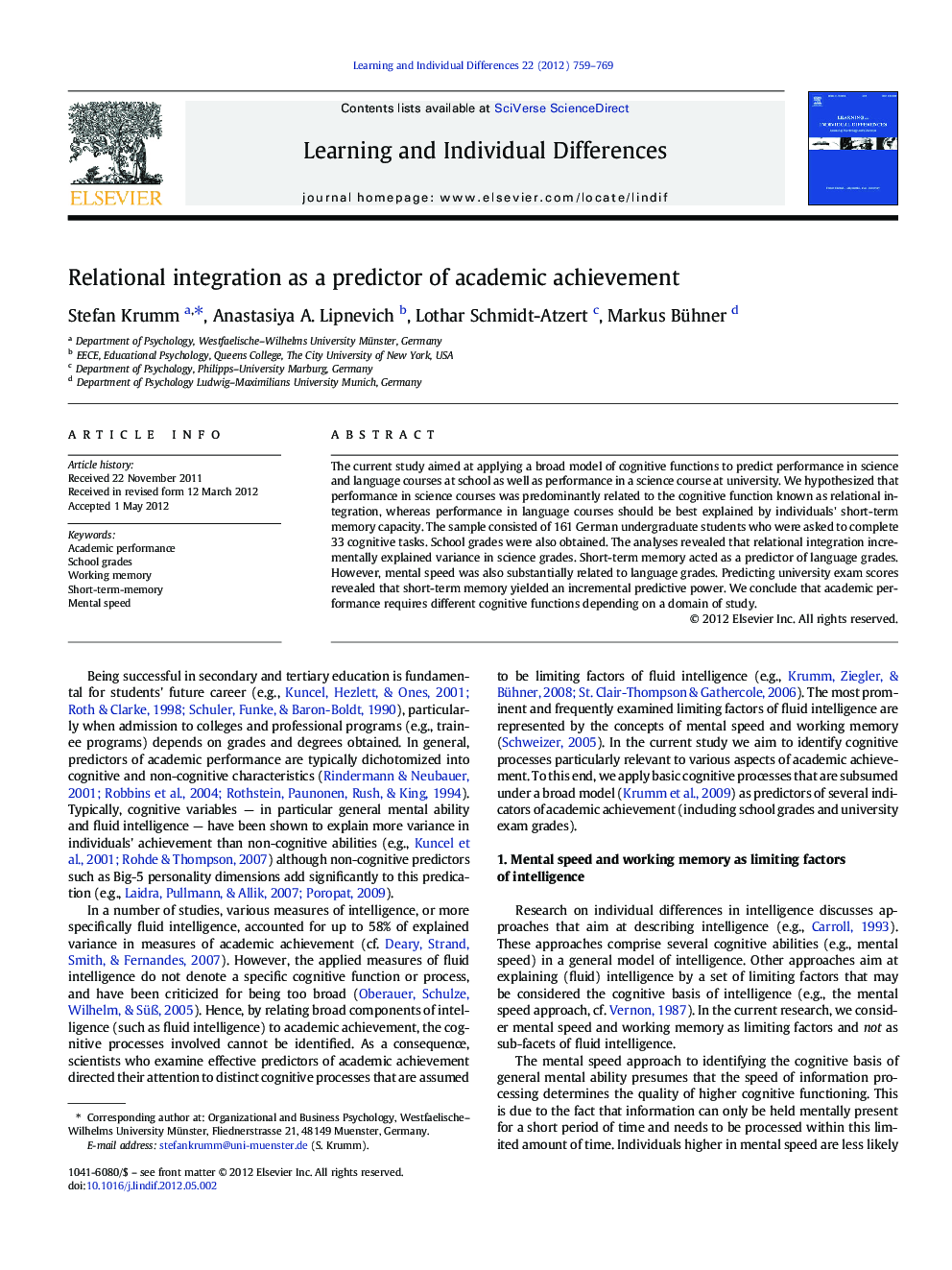| Article ID | Journal | Published Year | Pages | File Type |
|---|---|---|---|---|
| 364858 | Learning and Individual Differences | 2012 | 11 Pages |
The current study aimed at applying a broad model of cognitive functions to predict performance in science and language courses at school as well as performance in a science course at university. We hypothesized that performance in science courses was predominantly related to the cognitive function known as relational integration, whereas performance in language courses should be best explained by individuals' short-term memory capacity. The sample consisted of 161 German undergraduate students who were asked to complete 33 cognitive tasks. School grades were also obtained. The analyses revealed that relational integration incrementally explained variance in science grades. Short-term memory acted as a predictor of language grades. However, mental speed was also substantially related to language grades. Predicting university exam scores revealed that short-term memory yielded an incremental predictive power. We conclude that academic performance requires different cognitive functions depending on a domain of study.
► We used a broad model of cognitive functions to predict science and language grades. ► Relational integration incrementally explained variance in science grades. ► Short-term memory acted as a predictor of language grades ► Mental speed was substantially related to language grades. ► Academic success requires different mental functions depending on domain of study.
